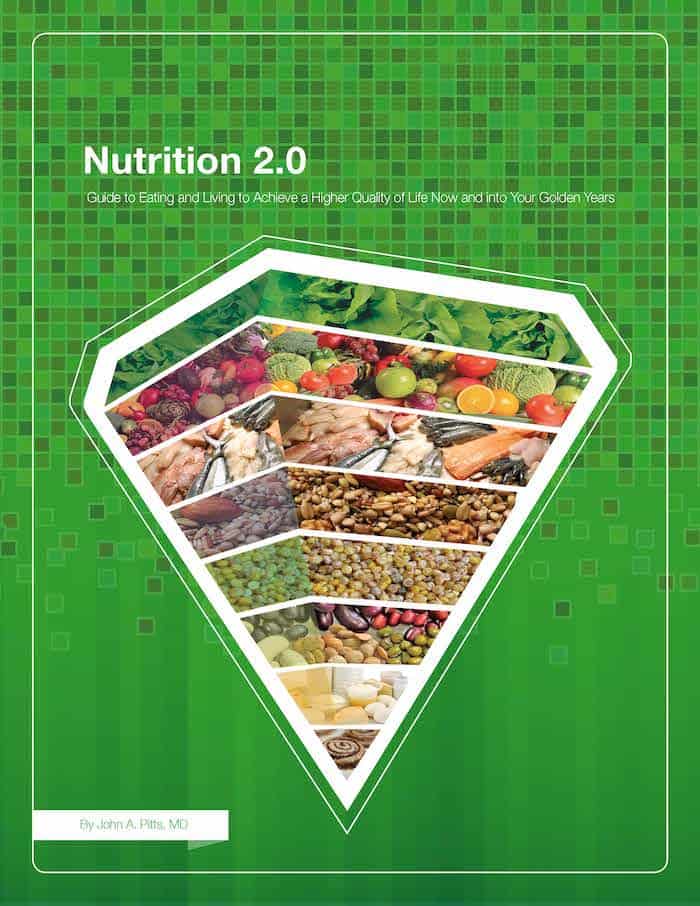Are you waking up feeling stiff with your joints making a creaking sound? Do you have knee, hip, shoulder, or ankle pain that’s keeping you from walking or doing the sports/activities you love? Maybe you are doing ok now but you want to prevent joint pain in the future? Don’t want to give up your activities? Hesitant to listen to your doctor’s advice of just taking pain medication or steroid shots? Don’t want to wait until the pain gets so bad that you end up having a joint replacement? Then you want to read below to find out what you can do to help prevent joint pain from a nutritional standpoint.
Can Nutrition Impact Your Joint Health?
The short answer is yes, absolutely! But how? Hopefully by now, most people know that nutrition plays a HUGE role in your health. Most chronic diseases are caused by poor diet, lack of movement, stress, and genetics. Currently, we have little control over genetics, but we can control the other factors.
Let’s discuss some specific ways that nutrition and lifestyle can affect your joints, because if you are reading this, there’s a good chance you like to be active and you can’t do that without healthy joints!
Let’s look at some research papers that discuss how nutrition can affect joint health.

Hypertension/high blood pressure
High blood pressure is directly related to diet and lifestyle. One large meta-analysis of eight studies showed an association between hypertension and knee arthritis (1). Genetics can increase the risk of hypertension, but currently, we can’t change that. However, lifestyle plays a more important role in the risk of hypertension and poor joint health. The most commonly associated risk factors for hypertension are obesity, too much salt, too little potassium-rich foods (vegetables and fruits), sedentary lifestyle with lack of exercise, too much alcohol, stress, NSAIDs (non-steroidal anti-inflammatory drugs), smoking, low vitamin D, and excess sugar.Thus, how can you combat hypertension?
Longevity Gene SIRT-1
SIRT-1 is a longevity gene that can make you live longer, look younger, preserve muscle, and improve hair quality and joint health. It is expressed in cartilage to keep it healthy as well. When its expression is decreased, it decreases chondrocyte activity. These are the cells that make cartilage (2).
Beer
Sorry to those who love to go to a good brewery! This study showed increased beer consumption is a risk factor for knee and hip arthritis (3). This is likely due to excess calories, grains, and alcohol, all of which can lead to metabolic syndrome and obesity.
You may have noticed that all the above-mentioned risk factors for poor joint health have to do with obesity and metabolic syndrome. What is one of the largest risk factors for obesity and metabolic syndrome? Sugar and especially fructose!
Sugar/fructose
Fructose is, unsuspectingly, one of the worse things for you to consume in excess. And it does not take much to be in excess. Table sugar is a molecule that contains two sugars: 50% glucose and 50% fructose. High fructose corn syrup increases the fructose to glucose ratio to 55%/45%. Glucose is essential to life, as your red blood cells and brain primarily rely on these fuel sources to survive. Even still, you do not need to consume sugar, as your body can make it from the glyceride in triglycerides (fat) and from protein. Fructose is not essential and is a much more problematic sugar. While eating excess glucose can cause problems, such as obesity, fructose can cause many more problems at lower doses. Fructose is a huge contributor to metabolic syndrome, thus overall health, and joint health. Fructose metabolism leads to increased fat, triglycerides, VLDL (bad cholesterol), hypertension, insulin resistance, overeating, and gout (which can cause uric acid crystals to injure joints) (4).
One way to decrease your fructose/sugar intake is not drinking sugary drinks, such as alcohol, soda, juice, and sports drinks. Read labels and avoid things with high fructose corn syrup or added sugars (most processed foods). If you do need a sweetener, use sugar alcohols, including erythritol, xylitol, or sorbitol, which you do not digest well, so you don’t get many calories from them. They can even have benefits for reducing plaque-causing bacteria and are good for the gut.

The Bottom Line
Want to maintain healthy joints so you can be physically active as you age? Understand that what you put in your mouth affects joint health! You can help your joint health with good nutrition and healthy lifestyle habits. The best thing to do is not get metabolic syndrome! To accomplish this with diet:
Written by John A. Pitts, MD, Regenexx Physician